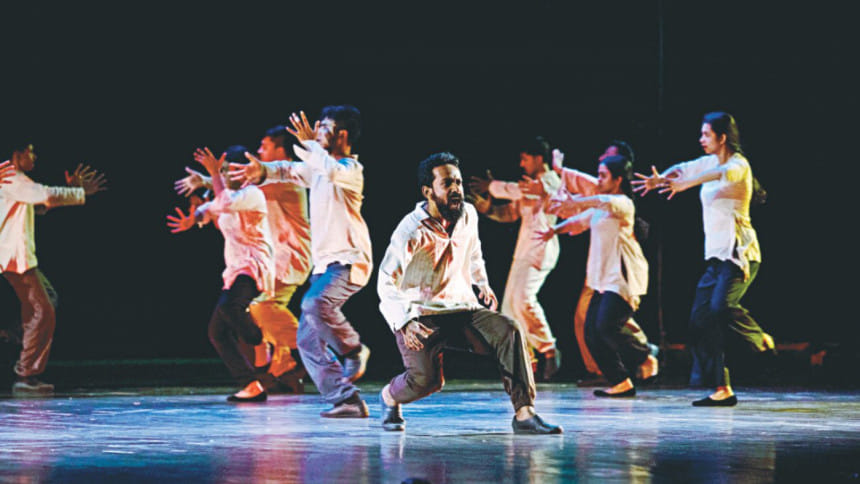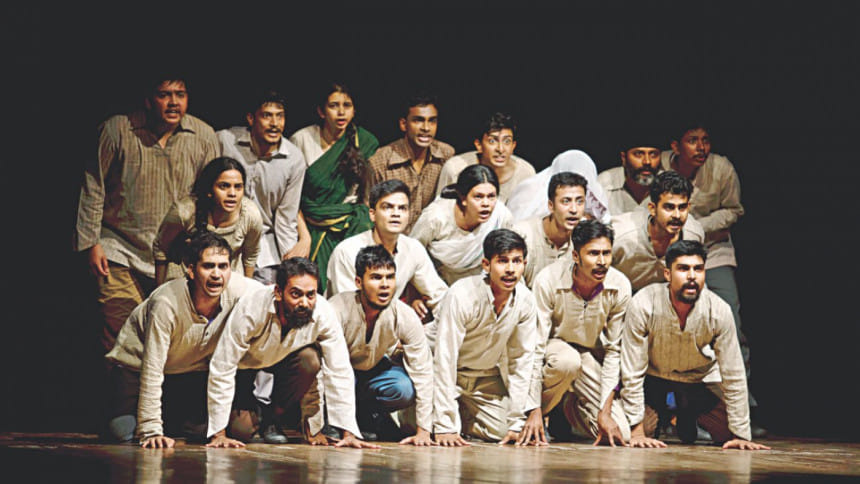'Jibon O Rajnaitik Bastobota' in review

After the success of his last theatrical production, Rizwan, legendary theatre director Syed Jamil Ahmed's latest production, Jibon O Rajnoitik Bastobota has caught the attention of many. Theatre troupe Spardha, in association with Bangladesh Shilpakala Academy (BSA) and the Ministry of Cultural Affairs, staged the play recently at the National Theatre Hall of BSA.
The production received mixed reactions from the audience, and has outraged many well-known professionals of the theatre arena.
The stage adaptation is based on eminent writer Shahidul Zahir's novel of the same name. Written in 1988, the story brilliantly examines the aftermath of the Liberation War of Bangladesh.
Jibon O Rajnoitik Bastobota, which focuses on the brutality of the Pakistani Army, opens in 1985 at the Laksmibazar Lane of Dhaka as Abdul Majid, a man who lost his elder sister, Momena, during the war, comes on. He is shocked when he sees that Abul Khayer, a collaborator of the war, is speaking on a microphone as a political leader. Majid recalls the day in 1971 when Badu Mawlana, father of Abul Khayer, distributed chopped pieces of human flesh to the crows on the rooftop of his house.

Making good use of the stage space, light, choreography, costumes and props, the cast of the play gave captivating performances. A total of twenty performers represented the main characters and chorus to reflect the different moods and movements. The intensive acting of the artistes brought the essence of the characters of Abdul Majid, Bodu Mawlana and Momena to life vividly. The representation of the perpetrator hiding amid the general public was beautifully portrayed by Bodu Mawlana, who transforms his gestures and looks staying in the middle of the crowd and later, blends with them seamlessly again. With strong lines such as "There is no everlasting friend or enemy in politics" from the novel, the adaptation was thought-provoking.
The recurrence of Abdul Majid's torn slippers and the flashbacks gave the adaptation a cinematic vibe. However, the background score was, at times, louder than the actors' voices, so much so that if someone happened to sit on the top floor of the hall, they might miss out on some vital details portrayed through the dialogues.
Shahidul Zahir's novels and short stories are highly acclaimed for their originality of language and narrative techniques. Spardha's adaptation of his Jibon O Rajnoitik Bastobota serves as a strong reminder of how deeply political crisis can impact our daily lives.

 For all latest news, follow The Daily Star's Google News channel.
For all latest news, follow The Daily Star's Google News channel. 








Comments